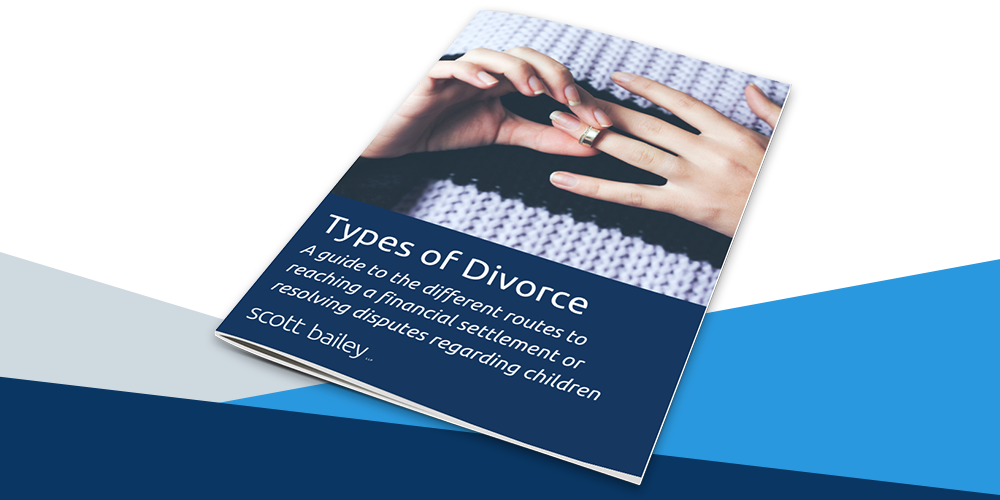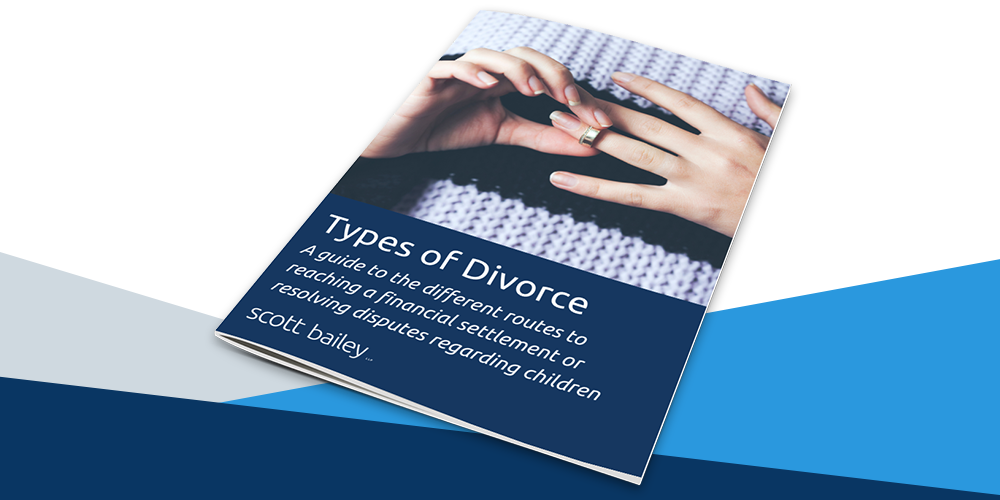Legally speaking there is now (since 6th April 2022) only one type of divorce: the ‘no fault divorce’. No fault divorces were introduced with the intention of making the divorce process quicker, easier and less combative. However, the language people use every day may differ in meaning from the legal definition. That’s why, despite changes to the law, we still get plenty of questions and see many people searching for information about ‘types of divorce’.
Generally speaking, what we find people mean when they say ‘types of divorce’ is the many ‘types’ or routes to reach a financial settlement or resolve disputes in respect of children. In this guide, we’ll break down each of those routes. With so many options, it can be difficult to work out what’s best for you. Learning about the different routes available to you is a great starting point, however, seeking expert legal advice is the best way to ensure you make the right choice. If you’d like some support, our family law team are here to help. Once they’ve had an initial chat, our team can guide you to the best bespoke process that suits your needs and circumstances.
Download Types of Divorce: a guide to the different routes to reaching a financial settlement or resolving disputes regarding children

At Scott Bailey, we understand that every case is unique and there is no one size fits all solution. Helping our clients achieve the best possible outcome for them is always our number one priority. Our team of expert divorce solicitors have extensive experience assisting clients to find the bespoke process that best suits their needs and circumstances. If you’d like to arrange a consultation with one of our divorce solicitors, get in touch today.










